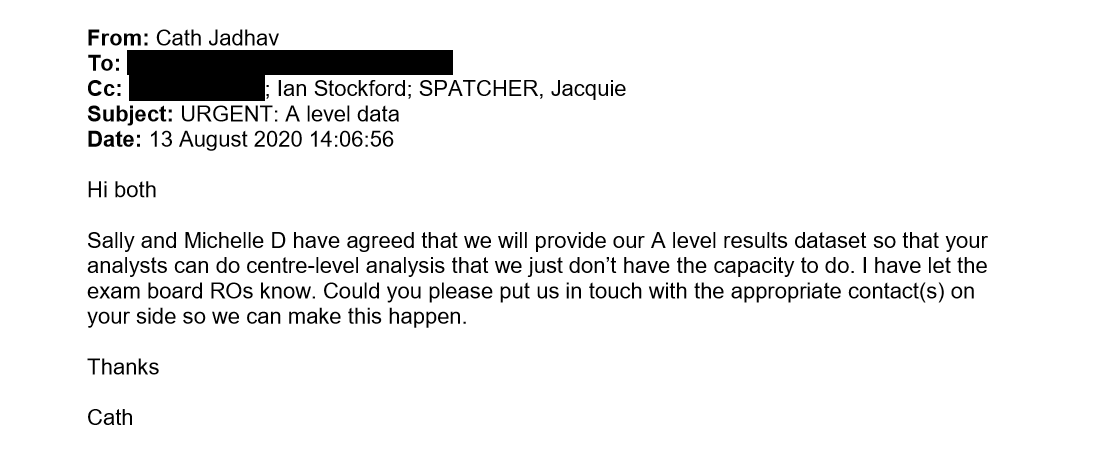England’s exams regulator said that it lacked “capacity” to analyse the impact of its controversial A-level grading algorithm on schools hours after results were published this summer, Tes can reveal.
In an email exchange, obtained through a freedom of information request from Tes, Ofqual told the Department for Education it would “provide our A-level results dataset so that your analysts can do centre-level analysis that we just don’t have the capacity to do”.
Revealed: DfE’s spin on private schools’ A-levels gain
Exclusive: Ofqual missed A-level private school bonus
A levels 2020: Private schools get far larger A/A* rise
Social mobility: ‘No bias’ in grading, Ofqual says

The email came in the early afternoon of A-level results day. Correspondence on the day between the regulator and the department shows concerns over the perception private schools had disproportionately benefited from the standardising process because of their smaller cohorts.
The day after, on 14 August, Tes reported that Ofqual’s technical report had omitted an in-built advantage for private schools in its A level grading model. Independent schools saw a rise in their proportion of A and A* grades that was more than double the increase for any kind of state school.
This was in part because it allowed schools with A-level subject cohorts of five or fewer students to keep their unmoderated teacher-assessed grades in these subjects. The grades tended to be higher than those moderated using Ofqual’s controversial algorithm.
And school subject cohorts with between five and 15 students saw their grades receive less statistical moderation than larger cohorts.
This meant that prior to the government U-turn over A-level grading, the standardising process benefited subjects with smaller entry numbers. FFT Datalab analysis at the time showed that private schools were more likely to do these subjects, such as A-level music.
Ofqual’s admission on results day that it lacked the “capacity” to analyse these advantages came after it raised concerns about the reliability of A-level grading a week before results were published.
Minutes from an emergency Ofqual board meeting held the week before A-level results day have already shown that the regulator thought its algorithm would produce “unreliable” results for some GCSE and A-level students.
On 17 August, Ofqual announced a U-turn whereby students would receive their teacher-assessed grades after all.
In September, Ofqual chair Roger Taylor admitted that the “impossibility of standardising very small classes…benefited smaller schools” and “private schools in particular”.
In a statement to MPs, Mr Taylor said that Ofqual was aware of this intrinsic benefit of its model for independent schools but it did not know what to do about it.
“We knew about this, but were unable to find a solution to this problem,” he said. “However, we still regarded standardisation as preferable because overall it reduced the relative advantage of private schools compared to others.”
And in October, Tes reported how Ofqual decided to consult with exam boards over its algorithm - but not with the public.


